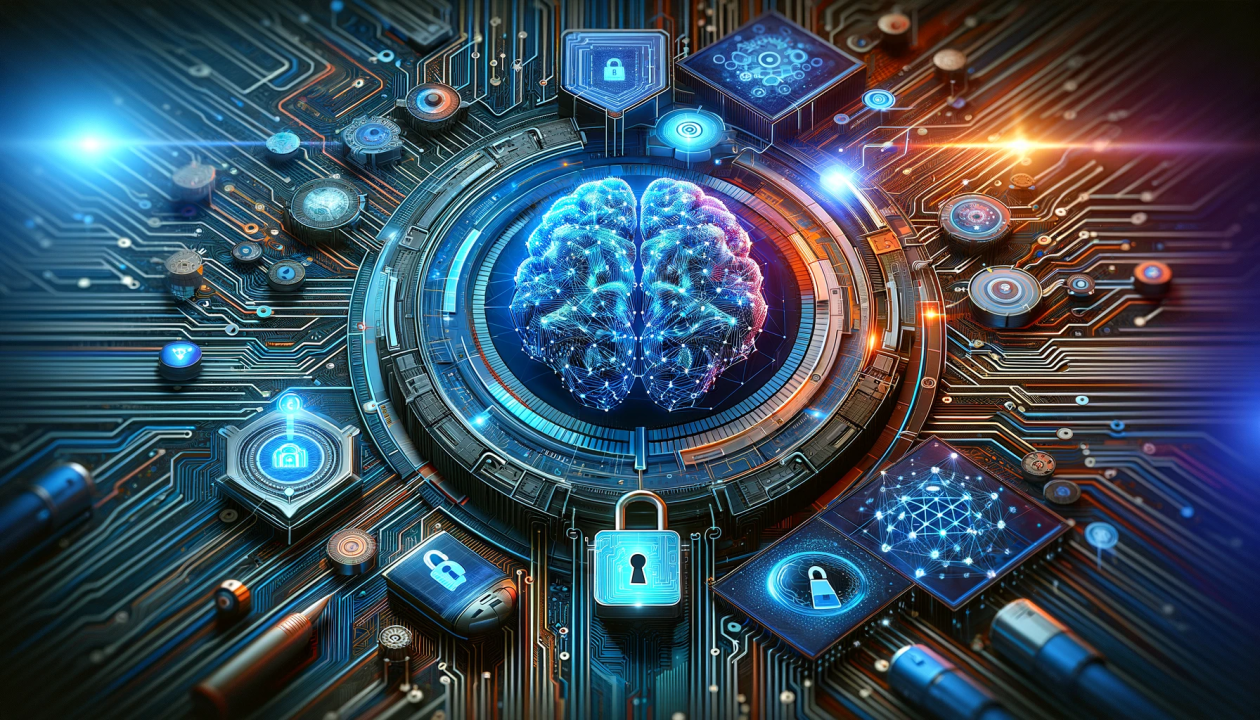In a period of technological advancement and digital innovation, the intersection of artificial intelligence (AI) and cybersecurity emerges as a critical frontier. As businesses and individuals navigate an increasingly interconnected digital landscape, the need to fortify defenses against evolving cyber threats has never been more pronounced. Here, we delve into the symbiotic relationship between AI and cybersecurity, exploring how AI-powered solutions are revolutionizing the battle against cyber adversaries while paving the way for a more secure digital future.
AI-Powered Threat Detection and Response: Traditional cybersecurity measures often rely on signature-based detection methods, which are limited in their ability to detect previously unseen threats. AI, however, offers a paradigm shift by leveraging machine learning algorithms to analyze vast amounts of data and identify anomalous patterns indicative of potential cyber-attacks. By continuously learning from new data inputs, AI-driven systems can adapt and evolve to detect emerging threats in real-time, bolstering the efficacy of cybersecurity defenses.
Proactive Risk Mitigation: Beyond reactive threat detection, AI empowers organizations to adopt a proactive approach to cybersecurity. Through predictive analytics and behavior analysis, AI algorithms can identify vulnerabilities and anticipate potential security breaches before they occur. By primitively addressing weaknesses in digital infrastructures, businesses can significantly reduce the likelihood of successful cyber-attacks, thereby safeguarding sensitive data and preserving business continuity.

Automated Incident Response: In the event of a security breach, swift and effective incident response is paramount to minimize damage and mitigate risks. AI-driven automation streamlines this process by enabling rapid detection, containment, and remediation of security incidents. From identifying compromised systems to orchestrating response actions, AI-powered platforms augment human efforts, accelerating response times and enhancing overall resilience against cyber threats.
Adaptive Security Posture: The dynamic nature of cyber threats necessitates an adaptive approach to cybersecurity. AI facilitates this adaptability by enabling security systems to continuously learn and refine their defense strategies based on evolving threat landscapes. By analyzing historical attack data and identifying emerging trends, AI-driven platforms empower organizations to dynamically adjust their security posture, ensuring optimal protection against both known and emerging threats.
Challenges and Ethical Considerations: Despite its transformative potential, the integration of AI into cybersecurity is not without its challenges and ethical considerations. Issues such as algorithmic bias, data privacy, and the ethical implications of autonomous decision-making underscore the importance of responsible AI deployment. As organizations embrace AI-powered cybersecurity solutions, it is imperative to prioritize transparency, accountability, and ethical governance to mitigate potential risks and ensure the responsible use of AI technologies.
The convergence of AI and cybersecurity heralds a new era of digital defense, where intelligent algorithms augment human capabilities to safeguard against increasingly sophisticated cyber threats. By harnessing the power of AI for threat detection, risk mitigation, incident response, and adaptive security, organizations can fortify their defenses and navigate the complexities of the digital landscape with confidence. As we embrace the promise of AI-powered cybersecurity, let us remain steadfast in our commitment to ethical principles and responsible innovation, ensuring that our digital future is secure, resilient, and inclusive.
to read more about AI please click on below –





